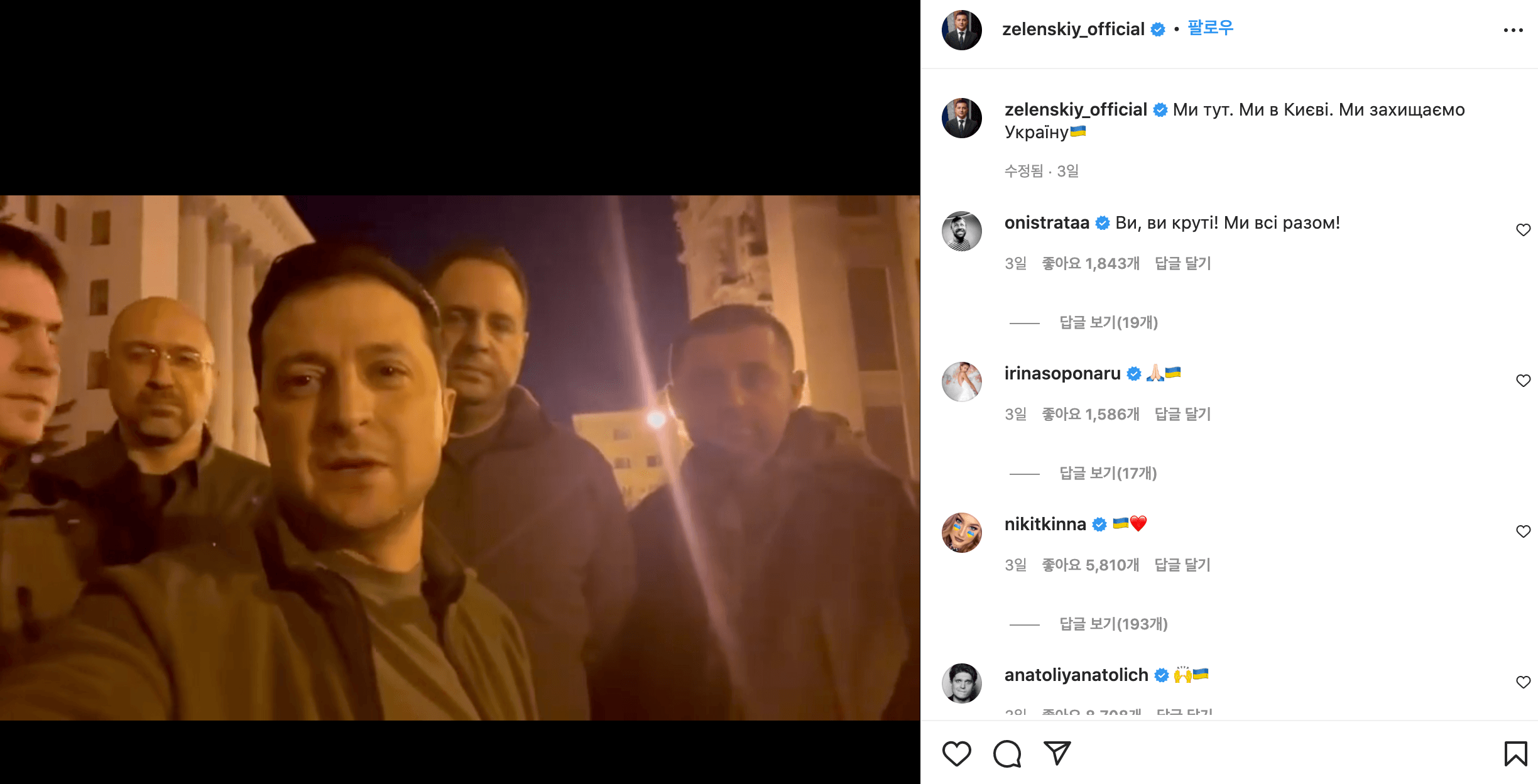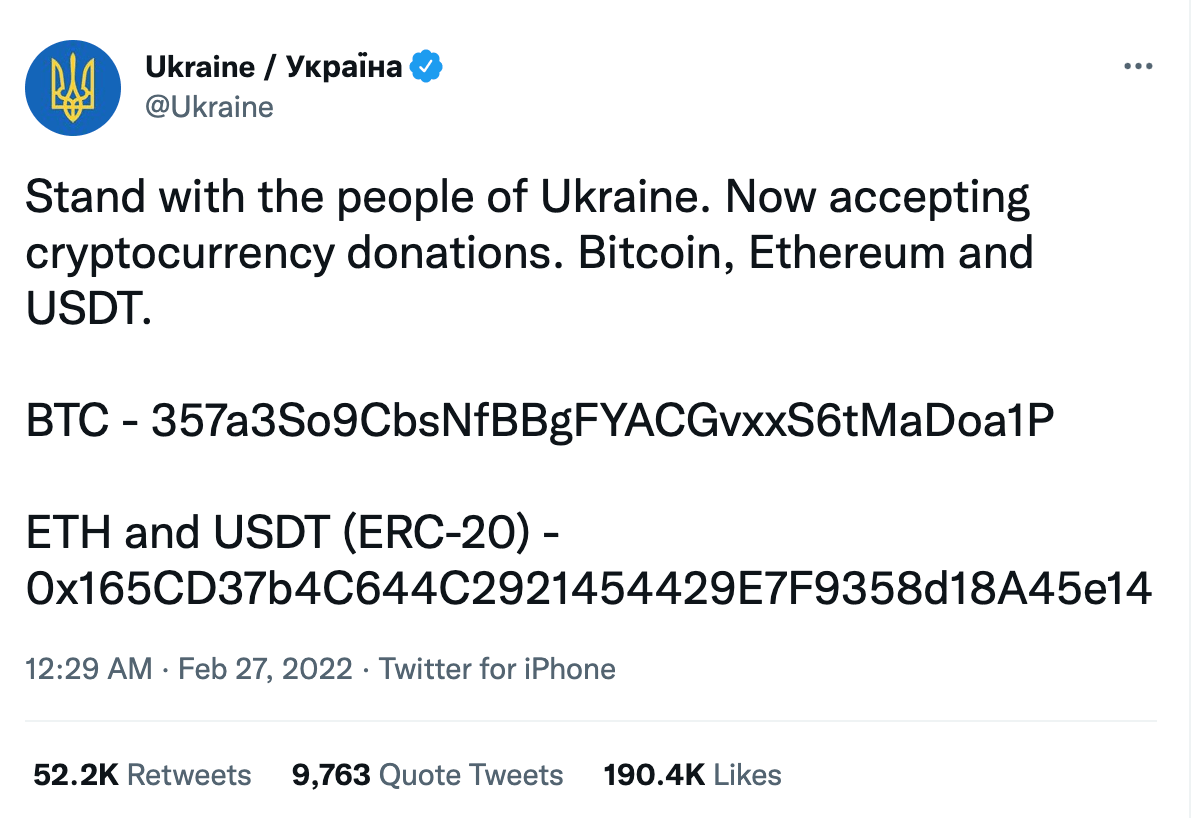
The Russo-Ukrainian war is said to be the first that has involved social networking services being used for communication and publicization. Facing a crisis during the war, Ukraine is taking advantage of social networks to deliver information to its citizens and the world, leading other countries to get involved by providing active support.
On February 26, Ukrainian President Volodymir Zelenskiy was able to connect with Ukraine’s citizens through his personal social media account.
Although the US recommended evacuation, President Zelenskiy chose to remain in Kyiv, saying, “I need ammunition, not a ride (for evacuation).” In his posts, he proved that he was protecting the capital by filming a video on the streets of Kyiv.
This allowed him to gain the full support of Ukrainian citizens: Julia McGuppy, editor of the Ukrainian news website Novo Bremya, said, "All Ukrainian people have gathered around President Zelensky." She added, "He leads the government that is defeating Putin's troops, and many people sincerely respect him."
It is not only the Ukrainians who were affected; Russians are also participating in anti-war protests. The movement spread among the MZ generation; those who see the world through social media. A survey of 1,021 Russian citizens asking whether Russia should have launched the invasion showed that only 34% of citizens aged 18 to 24 agreed.
People have been taking action outside of Russia as well: Swiss, France, Italy, and Austria are holding mass protests of 10,000 to 20,000 people, shouting for the “end of the war.” Anti-Russian movements are also extending to the US, as the country announced that it will be excluding Russia from SWIFT (the international payment network).
So far, Ukrainian NGOs have received more than $410 million in virtual asset donations. Many citizens around the world have directly donated virtual assets through social media. In the past, donations were possible only through banks; now, however, digital currency and social media are allowing individuals to take action.

During the war, Russia destroyed several of Ukraine’s TV and radio cables, assuming that these would be Ukraine’s main channels of communication. Instead of relying heavily on such conventional methods of communication, however, Ukraine used social media channels to convey information both inside and outside of the country to receive support.
The importance of social media has been highlighted several times through political events such as presidential elections. However, the Russo-Ukrainian war is the first to prove that social media can greatly influence public opinion as well as situations during warfare. Through the war, we are seeing that the proverb “The pen is mightier than the sword” is being replaced by a modern version: “Social media is mightier than the missile.”

Yunjin Huh
Grade 9
Chadwick International School

